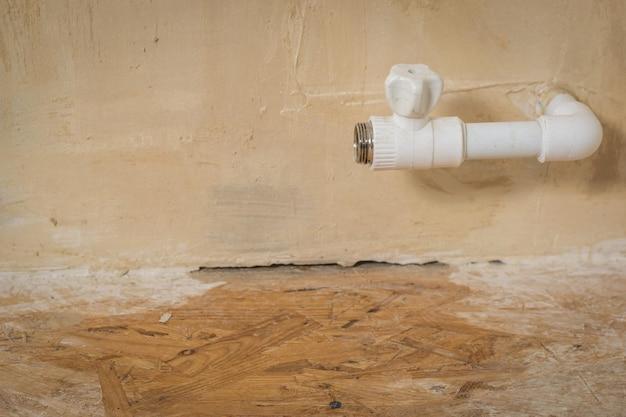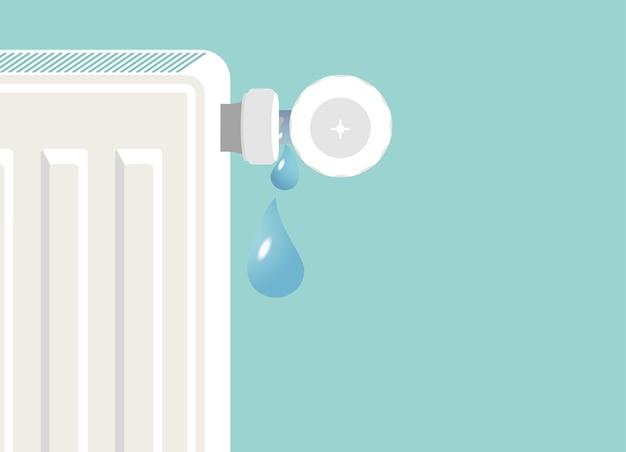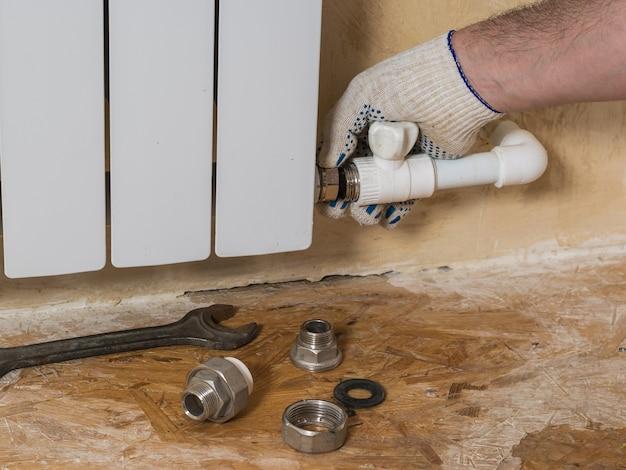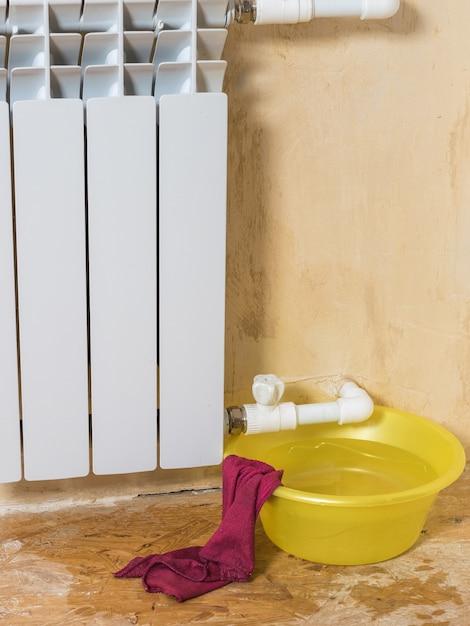Are you hearing strange hissing sounds coming from your water heater? Does it seem like your water heater is leaking water? These issues are not uncommon. In fact, they are some of the most common complaints homeowners have about their water heaters.
If you’re experiencing any of these problems, it’s important to address them promptly. Ignoring them could lead to further damage to your water heater, as well as potential safety hazards in your home.
In this comprehensive blog post, we’ll dive into the reasons your water heater might be hissing and leaking. We’ll cover the most common causes of these issues, the dangers they pose, and what you can do to fix them.
So, if you’re tired of hearing that annoying hissing sound coming from your hot water tank, or if you’ve discovered a leak that’s making a mess in your basement, keep reading. We’ve got all the information you need to diagnose and fix these common water heater problems.
Understanding Water Heater Hissing and Leaking
If you hear a hissing sound coming from your water heater, it’s usually a sign that there’s something going wrong inside. Hissing sounds can indicate that your water heater is overheating, or that there’s a leak somewhere that’s causing steam to escape. Whatever the cause of the hissing, it’s essential to address it immediately to avoid damage to your water heater or even your home.
What Causes Water Heater Hissing and Leaking
Several factors can cause your water heater to hiss and leak. These include:
Sediment Build-Up
Over time, sediment can build up inside your water heater tank, causing problems like hissing and leaking. When sediment accumulates at the bottom of the tank, it can eventually harden and form a layer that traps heat inside. This can lead to the water overheating, which causes the hissing sound. Additionally, the trapped heat can cause the tank to crack, leading to a leak.
Faulty TPR Valve
The TPR (temperature and pressure relief) valve is an essential safety feature that releases excess pressure and heat from your water heater. If the valve is faulty, it may release steam or hot water, causing the hissing sound. Additionally, a faulty TPR valve can cause water to leak from the unit.
Loose Connections
Loose connections in your water heater can cause steam or hot water to escape, resulting in the hissing sound. If left unaddressed, the leaking water can cause significant damage to the surrounding area.
What to Do About Water Heater Hissing and Leaking
If you suspect that your water heater is hissing and leaking, it’s crucial to take action immediately. Here are some steps you can take:
Turn Off the Power
Before doing anything else, turn off the power supply to the water heater. This will prevent further damage from occurring.
Check the TPR Valve
Check the TPR valve to see if it’s releasing steam or water. If it is, you may need to replace the valve.
Inspect for Sediment Build-Up
Inspect the interior of your water heater tank for sediment build-up. If this is the problem, drain the tank to remove the sediment.
Tighten Connections
If you notice loose connections, tighten them to prevent further leakage.
Water heater hissing and leaking can be a sign of several issues, including sediment build-up, a faulty TPR valve, or loose connections. Whatever the cause, it’s crucial to take action immediately to prevent the problem from worsening. By following the steps outlined above, you can address the issue and ensure that your water heater continues to function correctly.
Water Heater Hissing After Shower
Many people experience a hissing sound coming from their water heater after using the shower. This can be alarming if you’re not sure what’s causing it. Here’s what you need to know about water heater hissing after a shower.
What causes water heater hissing after shower
Several factors can cause a water heater to make a hissing sound after a shower. One of the most common causes is the buildup of mineral deposits in the heating element. When water is heated, minerals like calcium and magnesium can form deposits on the element, causing it to hiss and make other strange noises.
Another reason for the hissing sound is a clogged drain valve. If the drain valve is clogged, it can create a high-pressure environment that causes the water heater to hiss and pop.
How to fix water heater hissing after shower
There are several ways to fix a water heater that hisses after a shower. The easiest way is to drain the tank and flush out any mineral deposits that may have accumulated inside. You can also clean the heating element using a descaling solution.
If the hissing sound is due to a clogged drain valve, you can fix it by opening the valve and allowing the water to flow freely. You may also need to replace the valve if it’s damaged or corroded.
Hissing sounds from water heaters are often a sign of trouble, but they don’t necessarily mean you need to replace your entire system. By understanding what causes the hissing sound and knowing how to fix it, you can keep your water heater running smoothly and avoid costly repairs down the road.
Hot Water Heater Hissing from Top
If you hear hissing sounds coming from your hot water heater, it’s not something you should ignore. The hissing sound can indicate that your hot water heater is under too much pressure and is about to burst, which can be dangerous and costly.
Shut off the Heater
The first thing you need to do is to immediately shut off your hot water heater. You may also want to turn off the gas or electricity to the heater to prevent any potential hazards. You can then allow the heater to cool down and release some of the pressure before attempting to troubleshoot the issue.
Check the Valve
One of the primary reasons why a hot water heater hisses from the top is due to a faulty pressure relief valve. This valve is designed to release excess pressure to prevent the hot water heater from exploding. Therefore, if the valve is malfunctioning, it can cause the hissing sound you hear.
Replace the Valve
If you discover that the valve is the problem, you may need to replace it. You can easily do this by turning off the water and gas supply to the heater and then unscrewing the existing valve. You can then install a new one by screwing it in place and reattaching any necessary components.
Call in a Professional
If the above steps do not fix the issue, it’s time to call in a professional plumber. They can assess the hot water heater and determine the underlying issue that is causing the hissing sound.
In conclusion, hearing a hissing sound from your hot water heater can be uncomfortable, but it’s an essential safety sign to pay attention to. To avoid severe damages to your house and belongings, always take prompt action when you hear such sounds from your hot water heater.
Why Is My New Water Heater Leaking
So, you’ve recently installed a brand new water heater, but you’re experiencing leaks. This can be frustrating and confusing, especially considering that new water heaters are supposed to be reliable and efficient. In this section, we’ll explore some reasons why your new water heater might be leaking.
Improper Installation
One of the most common reasons why new water heaters leak is improper installation. If the installation was not done correctly, it can lead to leaks and other issues. Common installation errors include incorrect sizing, improper insulation, and faulty connections. Ensure you hire a qualified technician to install your water heater to avoid such problems.
High Water Pressure
High water pressure is another culprit that can cause a new water heater to leak. When the pressure within your water system exceeds the recommended limit, it can cause your water heater to leak. Thus, consider bringing your water system pressure to the correct level.
Sediment Build-Up
Sediment build-up can cause leaks in new water heaters. A build-up of minerals and other debris can accumulate at the bottom of the tank and begin to corrode the tank’s inner lining. Consequently, the bottom of the tank may start leaking. One way to prevent this is by flushing your water heater tank regularly.
Damaged Tank
A damaged tank can also cause leaks in a new water heater. Although such cases are rare, they do happen. Physical damage to the tank itself or its internal components may cause leaks. If this is the case, it might be time to replace the water heater altogether.
In conclusion, a new water heater shouldn’t leak, but if it does, one of the reasons above could be the culprit. If you’re experiencing a leak, diagnose the specific problem based on the symptoms and find a solution. In most cases, some simple adjustments can correct or prevent leaks, but occasionally, a full replacement may be necessary.
Is a Hissing Water Heater Dangerous
If you’re hearing a hissing sound coming from your water heater, you may be wondering if it’s dangerous. In this section, we’ll explore what causes water heaters to hiss, and whether or not it’s something you should be concerned about.
What Causes a Water Heater to Hiss
A hissing sound from your water heater is typically caused by Built-Up Pressure within the Tank. As the water in your tank heats up, it expands and creates pressure. If the pressure relief valve is blocked, or if the temperature and pressure relief valve (T&P valve) is faulty, pressure can continue to build up inside your tank. This can cause a hissing sound, as well as leaks from the tank.
Is a Hissing Water Heater Dangerous
While a hissing water heater can be alarming, it is not necessarily dangerous. However, if the pressure continues to build and is not relieved, it can eventually cause your water heater to burst. A burst water heater can cause extensive damage to your home and may even lead to personal injury. Therefore, it is important to address the hissing sound as soon as possible.
Signs of a Dangerous Water Heater
If you notice any of the following signs, it may indicate that your water heater is becoming dangerous:
- Loud popping noises or rumbling sounds
- Leaking water from the tank or around the base of the water heater
- Decreased hot water temperature or water pressure
- Rust or corrosion on the tank or pipes
- Unusual smells, such as the smell of gas or rotten eggs
If you experience any of these symptoms, it is important to call a professional plumber to inspect your water heater and determine if it needs repair or replacement.
While a hissing water heater isn’t necessarily dangerous, it can be a sign that your water heater is under too much pressure. If you hear a hissing sound coming from your water heater, it’s important to address it quickly to prevent any potential damage. Be sure to watch out for the signs of a dangerous water heater, and call a professional if you notice any issues.
How to Fix a Hissing Water Heater
If you ever hear a hissing noise coming from your water heater, don’t panic! Although it can be alarming, hissing sounds are typically caused by an issue that can be easily fixed.
Inspect the Temperature and Pressure Relief Valve
One of the most common causes of a hissing water heater is a faulty temperature and pressure relief valve. This valve is a safety feature that releases excess pressure if the temperature inside the water heater gets too high. If the valve is damaged or worn out, it can cause hissing noises and even leaks.
To inspect the valve, turn off the power and water supply to the heater and release excess pressure by lifting the valve’s trip lever. If you notice any leaks, cracks, or signs of wear and tear on the valve, it’s time to replace it.
Check the Water Supply Lines
Another culprit of a hissing water heater could be a problem with the water supply lines. Loose valves, faulty pipes, or sediment buildup can cause hissing or whistling sounds to come from the heater.
Check for leaks or damage in the water supply lines and ensure that all valves are fully opened. If you notice any sediment buildup, drain the tank and flush it out to remove any debris that could be causing the noise.
Call a Professional
If you’ve tried inspecting the temperature and pressure relief valve and checking the water supply lines, but the hissing sound persists, it’s time to call in a professional. A licensed plumber can diagnose the issue and make any necessary repairs to your water heater.
In summary, a hissing water heater doesn’t have to be a cause for concern. In most cases, it can be easily fixed with a little bit of troubleshooting and maintenance. Just remember to turn off the power and water supply before inspecting the valve and never hesitate to call in a professional when needed.
Is a Leaking Water Heater an Emergency
A leaking water heater can present a significant problem in your home. Not only do you risk severe water damage, but it can also pose a safety hazard as leaking water can come into contact with electrical circuits. So, is a leaking water heater an emergency? Let’s find out.
Importance of Checking a Leaking Water Heater
While a leaking water heater might not seem urgent, it’s essential to take it seriously in the context of your home. Leaking water can cause mold, mildew, and other damages to your belongings and even structure. Since most water heaters are situated in enclosed spaces like basements or utility rooms, water damage can cause a musty smell that can be challenging to eliminate.
Health Risks of Ignoring a Leaking Water Heater
Ignoring a leaking water heater could result in severe health concerns. As we mentioned, the damp and dark environment can cause mold and mildew. These fungi release spores into the environment that can cause respiratory problems, especially for those with allergies or compromised immune systems.
Safety Concerns of a Leaking Water Heater
While water and electricity do not mix, a leaking water heater can cause electrical circuits to short, posing a fire hazard. If your water heater is situated near a gas line, leaking water could cause a gas leak, putting your family’s safety in danger.
When to Call for Emergency Services
A leaking water heater should be considered an emergency and should be dealt with promptly. If you notice water dripping or pooling around your water heater, it’s best to turn off the water and electricity/gas supply and call a professional plumber immediately.
In conclusion, a leaking water heater might not seem like an emergency, but it can have lasting effects on your home, your health, and your safety. It’s best to have a professional plumber assess the problem, mitigate the damage, and restore the safety and function of your water heater.
What to do when your water heater starts leaking
A leaking water heater is a common plumbing problem that can cause a lot of damage to your home’s floors and furniture. If you notice your water heater hissing and leaking, it’s essential to act fast. Here are some steps you can take to prevent further damage and repair your water heater:
Shut off the power supply to the water heater
If your water heater is electric, you should turn off the power supply to the unit immediately. Find the circuit breaker that controls the water heater and flip it to the off position. If you have a gas unit, turn off the gas line to the heater.
Turn off the water supply to the water heater
Locate the cold water supply line that leads to your water heater and turn off the valve. This will stop the flow of water into the unit and prevent further leaking.
Drain the water from the water heater
You can either wait for the water to cool down or take extra precautions to prevent scalding. Hook up a garden hose to the drain valve located at the bottom of the water heater, running the hose to a nearby drain or outside to avoid water damage. Open the valve to drain the water from the tank.
Diagnose the problem
Once the tank is drained, it’s time to find out what caused the leak. Inspect the water heater unit for any signs of corrosion, cracks, or damage. You may need to consult with a professional plumber if you’re unsure of the cause of the leak.
Repair or replace the water heater
If the water heater is old or damaged beyond repair, you may need to replace it entirely. Consult with a professional plumber to determine which option is best for your situation.
Taking these steps will prevent further damage from occurring and help you get your water heater back up and running in no time. Remember to always prioritize safety first and seek professional advice if needed.
Why is Water Seeping from the Bottom of My Water Heater
If you notice water seeping from the bottom of your water heater, it could be a sign that your appliance is experiencing some issues. In this section, we’ll discuss the most common reasons behind this problem to help you understand why it is happening to your unit.
Leaking Drain Valve
One of the most common reasons why water heaters leak from the bottom is a faulty drain valve. If this component becomes worn-out or damaged, it won’t be able to keep the water properly contained, leading to leaks. You can try to fix this by tightening the valve or replacing it altogether.
Loose Connections
Another possible reason for water leaking from your water heater is loose connections. These could be on the inlet and outlet pipes or the temperature and pressure relief valve. Tightening these connections could solve the problem.
Rust and Corrosion
When rust and corrosion build-up on your water heater’s tank, it can cause tiny holes or cracks in the metal, leading to leaks. This is a common problem for older units that have not been well-maintained. The only solution for this is to replace the water heater entirely.
High Pressure
Sometimes, high water pressure can cause leaks in the bottom of your water heater. This is particularly true for gas water heaters. If you suspect that pressure is the issue, you should call a professional service to have them check the unit and adjust the pressure to a safe level.
In conclusion, water seeping from the bottom of your water heater is not something that you should ignore as it can lead to more significant problems down the line. We recommend that you try some of the tips mentioned above to solve the issue. If the problem persists, contact a licensed plumber to assess and repair the problem.
Why is My Water Heater Leaking and Making a Hissing Noise
If you hear a hissing noise coming from your water heater and notice some dripping or leaking, it’s essential to find the source of the problem and fix it quickly. Several factors can cause a water heater to leak or hiss, including:
Pressure Relief Valve
One of the most common reasons for a water heater to hiss is if the pressure relief valve is faulty or malfunctioning. The pressure relief valve releases water from the tank if the pressure builds up too high, preventing the tank from exploding. If it’s faulty, it can cause a hissing noise and even discharge water.
Sediment Buildup
Sediment buildup can also cause your water heater to hiss or leak. Over time, sediment can accumulate and harden at the bottom of the tank. As a result, the water heater will work harder to heat water, which can cause overheating and boiling. The hissing sound is the sound of steam escaping from the tank.
Loose Connections
Another reason for hissing and leakage may be loose connections. The connections around the water heater should be tightened regularly. If it’s loose, steam might escape. Tighten any loose connections around the water heater, including any valves, joints, or pipes.
Corrosion
Corrosion is also a common issue that can cause water heaters to hiss and leak. Over time, corrosion can cause the tank to crack or rust, leading to leaks. Once corrosion has occurred, it’s usually time to start looking at new water heaters.
In conclusion, if your water heater is making a hissing noise or leaking, it’s important to address the issue promptly before it turns into a more significant problem. Regular maintenance, such as flushing the tank, can help prevent sediment buildup. If you’re unsure about the reason for the hissing or leaking, be sure to call a professional for an inspection.



